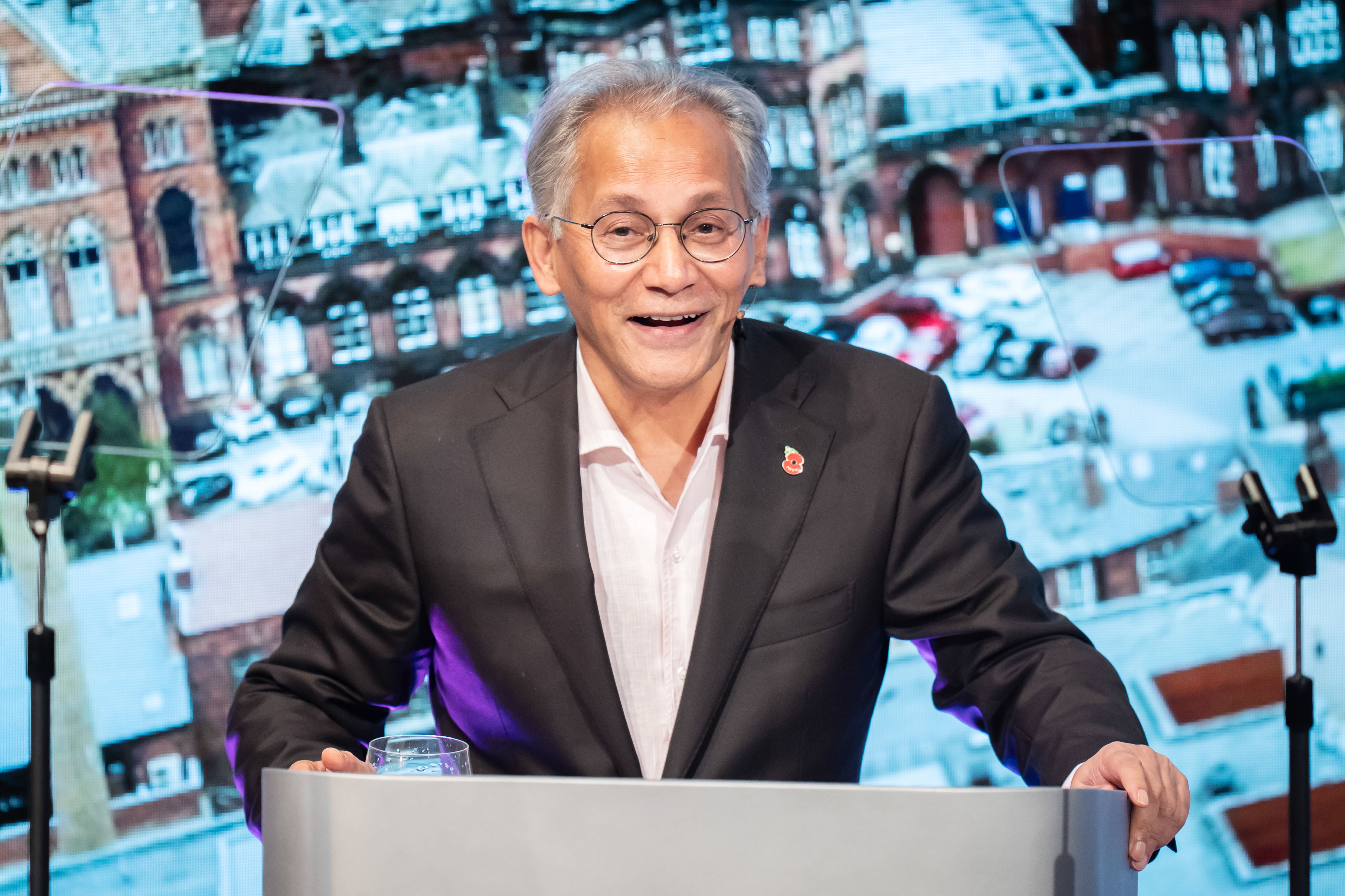BBC should not have to justify ‘very existence’ every 10 years, says chairman
Samir Shah questioned why the BBC needed a ‘root-and-branch review of everything we do, including our very existence’ every 10 years.

New BBC chairman Samir Shah said the corporation should not have to justify “our very existence” every 10 years and the Government should have the confidence to say “the BBC is a really good thing”.
Mr Shah questioned why the BBC’s charter needs to be regularly reviewed – unlike other bodies set up under Royal Charter, like the Bank of England and British Council – as he gave his first public speech in his new role.
He told an audience of leading media figures and decision makers on Tuesday that he questioned whether the BBC needed a “root-and-branch review of everything we do, including our very existence” every 10 years.
Mr Shah said: “In reality, it is possible that in January 2028 the BBC stops existing and the Government just sells off its assets.
He added: “The Government should have the confidence in saying the BBC is a really good thing.
“And we should, of course, review it and measure its performance but should not challenge its very existence and everything that it does every few years. We don’t need to do that.
“We can maintain proper governance and oversight without having this 10-year review.”
He also told the Leeds Conservatoire he has faith in those conducting the workplace culture review at the corporation following a series of high-profile scandals, saying staff who complain should not be “left dangling”.
He was asked about the BBC’s response to the Huw Edward affairs and the controversy surrounding Strictly Come Dancing.
He said he hoped the review led by Grahame Russell would produce practical results rather than just policy change.
He said: “We need to actually have steps we can take quickly, so we really do demonstrate to the staff that we really care about this, we are going to do something about it and we’re going to act fast.”
He said there was a feeling that people who made complaints “are left dangling” as HR and legal processes play out and “we need to find a way of keeping people informed”.
The corporation’s chairman told the audience the BBC needs to “make people think ‘oh yes, it is being taken seriously, they are going to act on it’.
“I want action rather than yet another little proposal.”
He said he had faith in Mr Russell and “unacceptable behaviour should be stamped out”, adding: “I go back a long way and we’ve done a lot really.
“Forty years ago it was terrible. It’s still not great in many places. I don’t want to underplay it but, when you talk to people, they love working for the BBC.
“They haven’t lost faith in the BBC. What we need to do is, when we do find people who’ve crossed the line, they believe we’ll stamp it out.”
In his speech, Mr Shah said: “We have seen significant progress in recent years – and certainly much better since I began my career in television 30 years ago.
“Nevertheless, there continues to be a sense that powerful people ‘get away with it’, that people who have had the courage to complain are left dangling – that more visible action needs to be taken when someone is found to have crossed a line.”
Turning to BBC funding, Mr Shah said: “We have to be realistic that ideas like ad-funding or subscription do not pass that test when it comes to the BBC public service mission.
“Both introduce a commercial agenda, which means the priority becomes not how you serve British audiences but how you profit from them.
“And putting some or all BBC public service content behind a pay wall is simply not compatible with the idea of public service.
“It prioritises the needs of the better off, leaves behind the poorer, the more marginalised or the digitally disenfranchised.”
In my view – and it is certainly the view of the rest of the world – there is no doubt that, without the BBC, this country would be much diminished
He said: “Whatever the future funding model turns out to be – anything from reforming the licence fee, replacing it, or coming up with a whole new mechanism – the independence of decisions on the level of the fee itself, and how that money is spent, will remain a key issue.”
The former government announced a review into the corporation’s licence fee model, which will look at alternative funding for the broadcaster’s operations for when its current charter period ends in December 2027.
The annual fee faced years of scrutiny under the Conservative government, with it being frozen for two years at £159 before it was increased at a lower rate than the corporation expected, bringing the charge to £169.50 in April.
Mr Shah his audience: “For all its faults, what an extraordinary achievement by the people of this country the BBC is.
“Only here, with our pathological addiction to running ourselves down, do we call that into question.
“Only here do we take a perverse delight in bashing our finest national institutions.
“Only here are we prepared to throw the baby out with the bathwater.
“In my view – and it is certainly the view of the rest of the world – there is no doubt that, without the BBC, this country would be much diminished.”
Bookmark popover
Removed from bookmarks